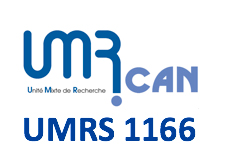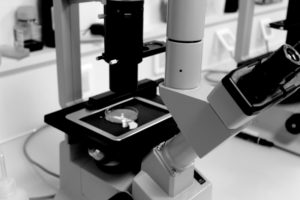Profound systemic alteration of the immune phenotype and an immunoglobulin switch in Erdheim-Chester disease in a single-center of 78 patients.
Aubart FC, Poupel L, Saint-Charles F, Charlotte F, Arsafi Y, Frisdal E, Roos-Weil D, Emile JF, Amoura Z, Guerin M, Lesnik P, Haroche J, Le Goff W.
Haematologica. 2021 Oct 14.
doi: 10.3324/haematol.2021.279118. Online ahead of print.PMID: 34647443
Abstract
Erdheim-Chester disease (ECD) is a rare, systemic, non-Langerhans cell histiocytosis neoplasm, which is characterized by the infiltration of CD63+ CD1a- histiocytes in multiple tissues. The BRAFV600E mutation is frequently present in individuals with ECD and has been detected in hematopoietic stem cells and immune cells from the myeloid and systemic compartments. Immune cells and proinflammatory cytokines are present in lesions, suggesting ECD involves immune cell recruitment. Although a systemic cytokine Th-1-oriented signature has been reported in ECD, the immune cell network orchestrating the immune response in ECD has yet to be described. To address this question, the phenotypes of circulating leukocytes were investigated in a large, single-center cohort of 78 patients with ECD and compared with a group of 21 control individuals. Major perturbations in the abundance of systemic immune cells were detected in patients with ECD, with a decrease in circulating plasmacytoid, myeloid 1, and myeloid 2 dendritic cells, mostly in BRAFV600E carriers, in comparison with individuals in the control group. Similarly, a marked decrease in blood T-helper, cytotoxic, and B lymphocyte numbers was observed in patients with ECD, relative to the control group. Measurement of circulating immunoglobulin concentrations revealed an immunoglobulin G switch, from IgG1 to IgG4 subclasses, which are more frequently associated with the BRAF mutation. First-line therapies, including pegylated IFNlland vemurafenib, were able to correct most of these alterations. This study reports a profound disturbance in the systemic immune phenotype in patients with ECD, providing important new information and helping to understand the physiopathological mechanisms involved in this rare disease and in the therapeutic management of patients.



